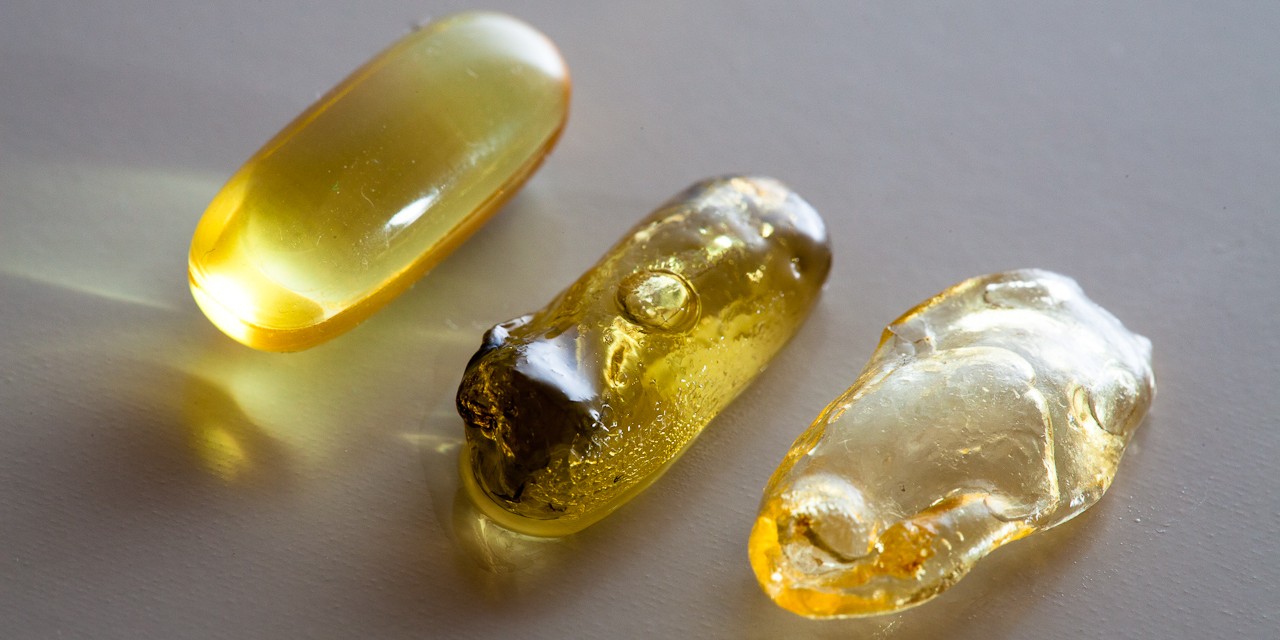Highly unsaturated oils are very sensitive against oxidation, and can even often become rancid because of it. This can be dangerous and even lead to health issues in people. The oxidation of omega-3 fatty acids, especially those found in fish oil supplements, can be concerning for several reasons and we are going to explore all of them in this article.
Table of contents:
- Oxidation Mechanisms in Omega 3
- Consequences of Oxidatized Omega-3 Fatty Acids
- How to minimize the risk of oxidation
Why is Oxidation occuring in Omega-3 supplements?
Omega-3 fatty acids, namely eicosapentaenoic acid (EPA) and docosahexaenoic acid (DHA), are primarily found in fatty fish, algae, and certain plant sources. These PUFAs play a vital role in cellular membranes, neurological function, and the modulation of inflammatory responses. However, the double bonds in their chemical structure make omega-3 fatty acids vulnerable to oxidation, a process influenced by various factors such as temperature, light, and exposure to air.
Oxidation Mechanisms:
Oxidation of omega-3 fatty acids involves the reaction of unsaturated bonds with reactive oxygen species (ROS), resulting in the formation of lipid peroxides. This initial step triggers a chain reaction leading to the production of secondary oxidation products, including aldehydes and ketones. These compounds can exert harmful effects on cells and tissues, potentially compromising the health benefits associated with omega-3 consumption.
Consequences of Oxidized Omega-3 Fatty Acids
Formation of Harmful Byproducts
Oxidation of fish oil can lead to the production of free radicals, lipid peroxides, and other oxidative breakdown products. These compounds may contribute to oxidative stress in the body, which is associated with various health issues.
Reduced Nutritional Value
Oxidation diminishes the nutritional quality of fish oil. Omega-3 fatty acids, such as EPA (eicosapentaenoic acid) and DHA (docosahexaenoic acid), are the primary health-promoting components of fish oil. Rancid fish oil may not provide the expected benefits for heart health, inflammation, and brain function.
Gastrointestinal Discomfort
Rancid fish oil may have an unpleasant taste and odor, potentially causing digestive discomfort or nausea for individuals taking the supplements.
Inflammation and Oxidative Stress
Some studies suggest that consumption of oxidized fish oil may be associated with increased inflammation and oxidative stress, potentially negating the anti-inflammatory and antioxidant effects typically attributed to omega-3 fatty acids.
Potential Long-Term Health Effects
Prolonged consumption of rancid fish oil may have unknown long-term health consequences. The cumulative impact of oxidative stress and the formation of harmful compounds could contribute to chronic health issues over time.
How to minimize the risk of oxidation?
To minimize the risk of oxidation, it’s important to handle and store omega-3 supplements properly. Here are some tips:
- Storage: Keep fish oil supplements in a cool, dark place, away from heat and sunlight.
- Expiration Date: Check the expiration date on the supplement bottle and discard any expired products.
- Freshness Indicators: Some supplement brands provide freshness indicators, such as a time of manufacture or a testing certification for oxidation levels (like we do for our Omega-3 product).
- Trustworthy Brands: Choose supplements from reputable brands that adhere to quality standards and perform third-party testing for purity and freshness. (These are amongst our quality management practices at MVS Pharma during the creation of our Omega-3 product).
Conclusion
Understanding the oxidation of omega-3 fatty acids is crucial for maximizing their health benefits. While oxidation is an inherent challenge, adopting appropriate storage practices and selecting high-quality sources can help mitigate potential risks. Regular monitoring of the oxidative status of omega-3 supplements and further research into novel preservation techniques are essential for ensuring the continued efficacy of these essential fatty acids in promoting human health.
Disclaimer:
As a service to our readers, MVS Pharma GmbH publishing provides access to our library of archived content – in our blog. Please note the date of last review or update on all articles. No content on this site, should ever be used as a substitute for direct medical advice from your doctor or other qualified clinician.
Sources:
National Library of Medicine – “Oxidation of Marine Omega-3 Supplements and Human Health”
National Library of Medicine – “Fishing for answers: is oxidation of fish oil supplements a problem?”
Wiley Online Library – “Oxidation in EPA- and DHA-rich oils: an overview”
Science Direct – “Stability and stabilization of omega-3 oils: A review”
Science Direct – “Omega-3 fatty acids supplementation and oxidative stress parameters: A systematic review and meta-analysis of clinical trials”
Science Direct – “Beneficial effects and oxidative stability of omega-3 long-chain polyunsaturated fatty acids”


